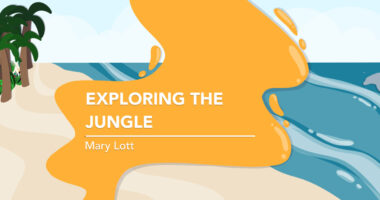Dealing with the brain-fog blues can be a struggle for us CAD patients
Here's how I cope on days that are challenging

My boys are scarfing down their Koko Krunch cereal. I hear the water running in the shower where my husband is. Soon, he and the boys will depart for their usual, fascinating day at school, where they’ll encounter new things, talk to others, and do stuff.
I am slouched at the breakfast table with the kids. It doesn’t take much energy to pour cereal into bowls, set the table, and watch them eat, yet doing so has worn me out. I still have my bathrobe tied around my waist. My hair is unkempt. We don’t make conversation at the table. It’s too early and none of us want to put in the effort.
I look down the stretch of time that is today, and fortunately, it is empty of requirements. Good thing! I have been dealing with brain fog and am having trouble focusing. I’m extremely tired just walking through the house — a result of my cold agglutinin disease (CAD).
Days of doing and days of malaise
My good, active, and alert days are sandwiched between days of lethargy and lack of focus. Today is in the latter group. There are several courses of action I could follow to work my way through this malaise.
Cold agglutinin disease is an autoimmune hemolytic anemia. As such, many “CADdies” complain of being tired a lot. This makes sense, considering we don’t have enough red blood cells to carry oxygen throughout our bodies to enable our organs and muscles to function at full capacity. I certainly am not functioning at my best.
For instance, I have decided to write a book about our experiences here in Papua, Indonesia. I have the will to write and an outline in my head of the themes I wish to cover. I even have a file set up on Scrivener, an app I use to help organize my writing. Yet, as I put my fingers on my keyboard, I can’t seem to push out words onto my screen. My book remains unwritten.
How CAD complicates coping strategies
There are ways to deal with brain fog, though they seem geared toward healthy people. An article on Bangkok International Hospital’s website shares several treatment options, such as spending less time on the computer and phone. Although I could do this, I really don’t want to. My computer allows me to work and accomplish activities, even when I’m not feeling well.
Another potential solution is to think positively and reduce stress. However, I’ve found that the best way to reduce stress is to resolve whatever’s causing it, and there is no resolution for CAD. This stressor is a chronic reality. Even if I ignore it, it will lurk in my subconscious like a crocodile beneath the waters of Lake Sentani, waiting to snap at me when I’m unaware.
The article also recommends getting regular exercise. Because I’m anemic and have no energy, I laughingly ignore this suggestion. If I didn’t laugh, I would be bawling out my despair.
Acceptance
Today is one of the most challenging days I have had. In this case, I find solace in Ecclesiastes: “Two are better than one, … For if they fall, one will lift up his fellow.”
I am not powering through my brain fog, but lying on my bed, typing away. The sky has clouded over to match my mood. My husband will cook dinner for the boys, and I will rest.
Note: Cold Agglutinin Disease News is strictly a news and information website about the disease. It does not provide medical advice, diagnosis, or treatment. This content is not intended to be a substitute for professional medical advice, diagnosis, or treatment. Always seek the advice of your physician or other qualified health provider with any questions you may have regarding a medical condition. Never disregard professional medical advice or delay in seeking it because of something you have read on this website. The opinions expressed in this column are not those of Cold Agglutinin Disease News or its parent company, Bionews, and are intended to spark discussion about issues pertaining to cold agglutinin disease.






Sandra Wofter
Such a strange disease with many different symptons and yet the same underlying medical condition..My husband battles fatigue, but keeps going. His big issue is the cold hands and feet. Then there's his nose and ears and face that turns black when exposed to cold temperatures. So irritating and embarrassing. We are doing treatments thru his oncology Doctor that seems to be affecting his blood in a good way. It will, of course, never cure him but does make life with CAD easier. May God bless each of these CAD carriers. Keep the faith.
Mary Lott
It is a weird disease and I feel like a weird duck trying to explain it to others. I salute you as your husband's caregiver. It can be challenging to give the correct level of care. I'm glad your husband isn't trying to go through this alone.